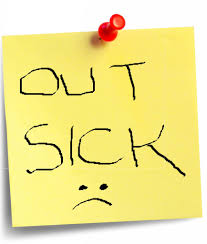 There are a million ways to budget effectively and prioritize your earnings after your pay date, but this doesn’t mean a thing when you are unable to work and by extension, have little income finding its way into your bank accounts. Pinching the pennies might seem more difficult than ever. If you’re happily reading this article employed and able, this doesn’t mean you should feel it’s any less relevant to your situation. Unfortunately, people can find themselves in difficult life situations at the drop of a hat, and many of them can affect the ability to hold down a permanent job.
There are a million ways to budget effectively and prioritize your earnings after your pay date, but this doesn’t mean a thing when you are unable to work and by extension, have little income finding its way into your bank accounts. Pinching the pennies might seem more difficult than ever. If you’re happily reading this article employed and able, this doesn’t mean you should feel it’s any less relevant to your situation. Unfortunately, people can find themselves in difficult life situations at the drop of a hat, and many of them can affect the ability to hold down a permanent job.
For this reason, you should enact the following educational tips and preventative measures to make sure you’re well looked after during any amount of time off work:
Sick Pay
Learning about statutory sick pay and how it affects you can help you understand what you’re entitled to when you’re too sick to work. For the most part, businesses will offer a paid amount of sick leave per year, and this can accumulate depending on how many days you take off in a certain period. It is legally required for your employer to provide you with an amount that can help you take care of your essentials.
For a day or two off, you may not need to prove your health issue, although employers may request this. If absent from work for a relatively long period, employers will expect you to provide them with clear and verified medical notes detailing the difficulty of your injury and how long you can expect to be off for. Usually, statutory sick pay can be paid for a maximum of 28 weeks. Your sick pay entitlement will be different depending on a variety of circumstances, so it’s important to check online to see how your position will be affected. This funding can serve as the lifeline needed to truly get over the most difficult and worrying of short/mid term health care issues.
Savings
You must save your earnings to the degree which helps cover you and your excess needs during the long periods of illness that one day might befall you. Investing in an emergency fund of around 10% of your paycheck can help you rather quickly build a nest egg which is vitally important in helping you stay supported during a period of illness. This is a preventative measure, but it’s certainly worth knowing before you do become ill and the remedy is too late.
Health Insurance
Everyone knows the importance of having good health insurance, but how many of us truly have a package which can cover us during extended periods of ill health? Most people opt for cheap and simple packages which help them cover the cost of medical remedies, but when it comes to recovery, these plans often leave them high and dry in the long term. Consider boosting your plan to a higher and more covered tier, which will give you the cover necessary to not worry about the issues which can plague the mindset of someone simply hoping to make it through the next few months of healing.
With these tips, you’ll worry less about being in financial difficulty and will be able to focus on healing and attending your medical treatments.


No Comments